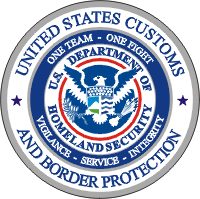Additional CBP Guidance on Imported Cargo Shipped on Hanjin Vessels
Additional CBP Guidance on Imported Cargo Shipped on Hanjin Vessels
Excerpt from: Sandler, Travis & Rosenberg | September 14, 2016
U.S. Customs and Border Protection has issued guidance on two additional scenarios that could take place with respect to imported cargo being transported by Hanjin Shipping, a major ocean carrier that recently filed for bankruptcy. Click here for CBP’s initial guidance.
 One additional scenario is if an entry has been filed and the cargo has been released by CBP but the terminal operator will not allow it to leave the terminal due to payment issues.
One additional scenario is if an entry has been filed and the cargo has been released by CBP but the terminal operator will not allow it to leave the terminal due to payment issues.
CBP states that such entries should not be routinely cancelled to avoid payment of duties or completion of the entry summary. If the trade partner requests, CBP can suspend the 10-day entry summary clock by placing the entry on a “documents required” hold, which can be removed once the terminal grants release and proof is provided to CBP via the Document Image System or other means to be determined by the ports.
CBP notes that the purpose of this hold needs to be well documented so that it can be identified as one related to the Hanjin issue. CBP also advises ports to monitor the number of days the goods are held in the event the shipment remains on hold beyond 30 days and the detention policy requirements are triggered.
The second scenario is if cargo for export has been loaded on board a foreign flagged vessel at a U.S. port but the vessel is now at a subsequent U.S. port and the exporter or carrier is requesting permission to unload the cargo in the U.S. to avoid issues. CBP states that such unloading would be a Jones Act violation and that it does not and cannot grant waivers.
Only the Department of Homeland Security can grant such a waiver, CBP states, and the criteria for doing so is for national defense. However, CBP adds that it can mitigate when there are exigent circumstances.
